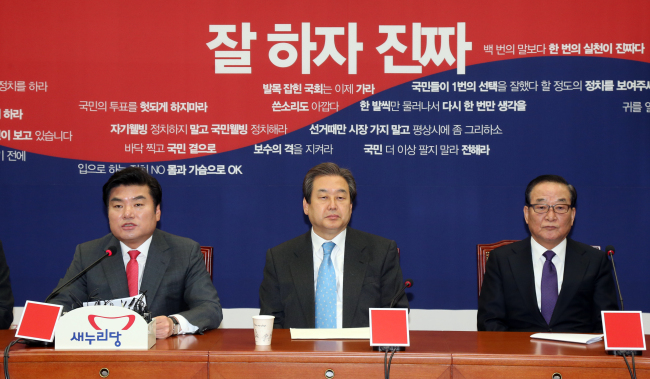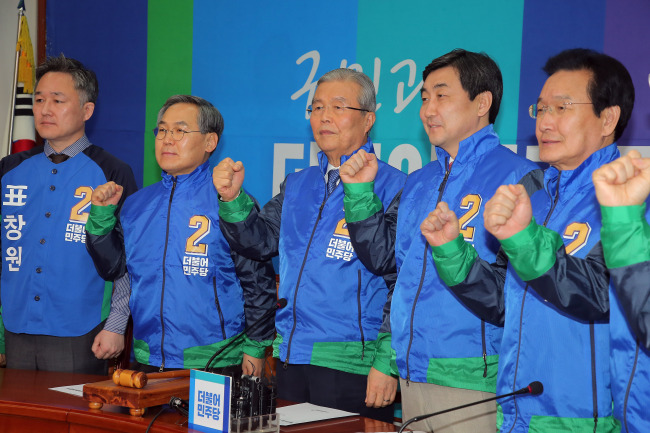The nomination process for the upcoming general election is likely to see a more diverse pool of political aspirants, with the rival parties adopting new nomination rules that favor those who have been politically alienated.
The ruling Saenuri Party and main opposition The Minjoo Party of Korea have announced that when they choose the candidates running in the April elections, they will give more points to “political underdogs” than established politicians. The beneficiaries include women, young people and the disabled.
“We decided to send young and female politicians to the party’s ‘priority’ nomination list,” said Rep. Lee Hahn-koo, the four-term lawmaker who oversees the party’s nomination process. The party designated four constituencies as its “priority” nomination list, with each two being reserved for female and young politicians.
Among the priority list are Nowon and Gwanak districts, Seoul – where 31-year-old Lee Jun-seok and 38-year-old lawyer Won Young-sup announced their bids, and Bucheon and Ansan of Gyeonggi Province, where several female party officials and professors are competing to be nominated.
Besides awarding 10 percent more points to women, the disabled and young people, the party will also increase the share of proportional representation seats reserved for female politicians from 50 to 60 percent.
 |
| The Saenuri Party leadership attends a party Supreme Council meeting on Monday. Behind them is a new election campaign placard that says “Let’s do well, really.” Yonhap |
The Minjoo Party has also decided to give more points to young and female lawmakers when they select candidates running for local constituencies. This group will receive 10 to 20 percent more points than average candidates during the procedure.
But the ongoing nomination procedures were also seen to reflect ideological difference among the rival parties. For instance, former war veterans have a better chance of being nominated in the conservative party and immigrants are more likely to be nominated in the liberal party.
The Saenuri Party will give up to 15 percent of extra points to war veterans as well as descendants of independent fighters.
Those who can avail of such benefits include former Gangwon governor Kim Jin-seon, who had fought in the Vietnam War, and preliminary candidate Baek Seong-tae, a war veteran preparing to run in Gumi, North Gyeongsang Province.
The Minjoo Party, for its part, has announced that it will give extra points to immigrants with multicultural family backgrounds as well as political aides who have worked with incumbent and former lawmakers for at least eight years.
“Given that the Saenuri Party does not give extra points to immigrants running for nomination contests, I think the measure can highlight our party’s liberal stance toward (cultural diversity), said a Minjoo Party official who is familiar with the nomination process.
 |
| The Minjoo Party leadership makes victory gestures while wearing new election campaign jackets at a party meeting on Monday. Yonhap |
The trend of embracing political minorities is also apparent among smaller political groups.
The People’s Party has announced a rule that it will give more points to female and disabled politicians. Female and disabled candidates can receive 10 and 25 percent more points required for winning candidacy than the average candidates.
Meanwhile, those who have never run in elections will also be high on the parties’ nomination list. The Saenuri Party, the Minjoo Party and the People’s Party have decided to grant new faces 10 to 20 more points than incumbent lawmakers for securing nomination.
By Yeo Jun-suk (jasonyeo@heraldcorp.com)

